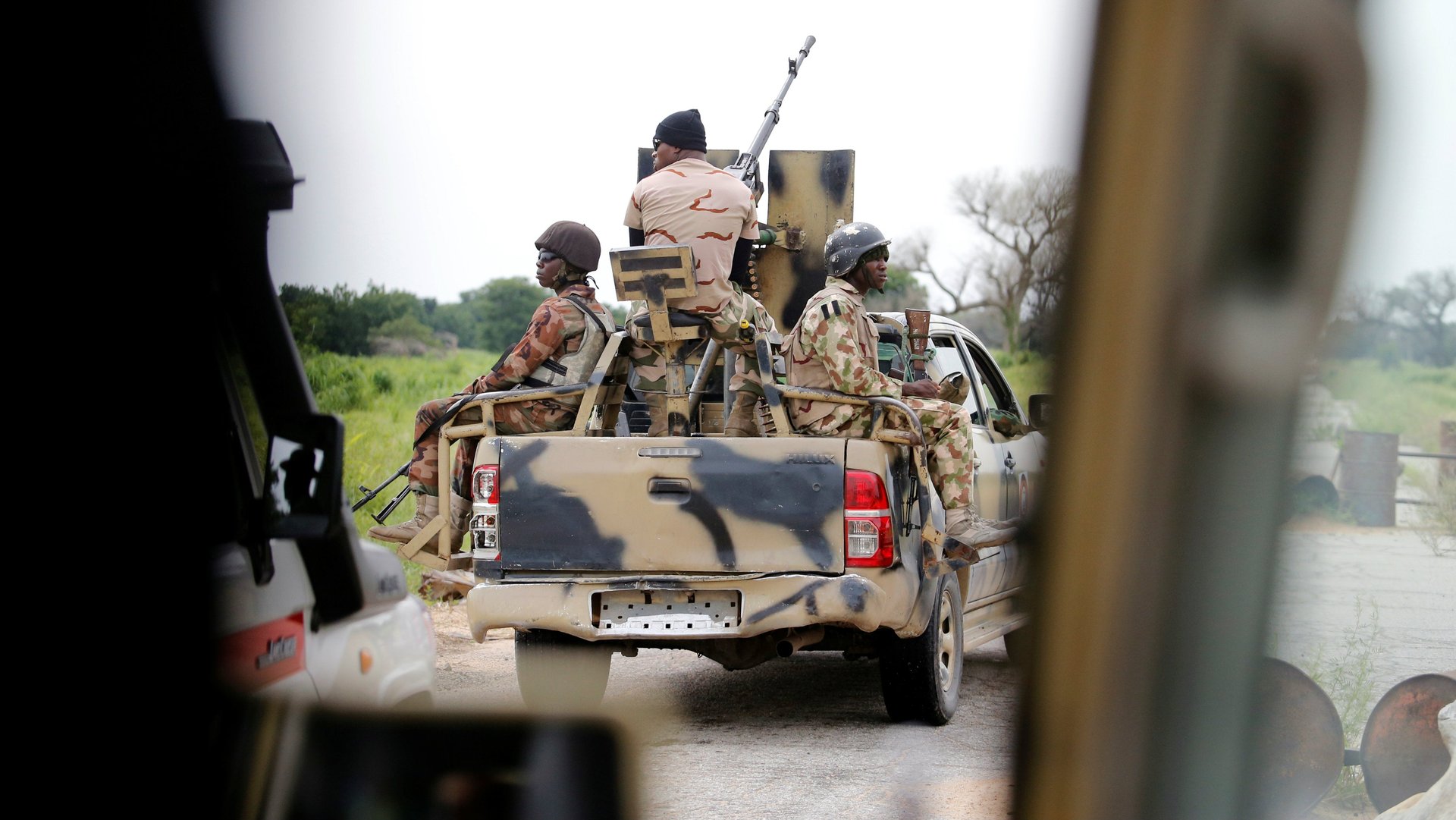The killing of a Nigerian hero by Boko Haram has seen the country unite in grief
A good number of Nigerians have been through life under military rule. As with many military dictatorships, incidents of arbitrary arrests, suppression of human rights and restriction of the press were common. Even under a civilian government, there are accounts of soldier brutality. As a result, many Nigerians typically do not have the best perception of soldiers.


A good number of Nigerians have been through life under military rule. As with many military dictatorships, incidents of arbitrary arrests, suppression of human rights and restriction of the press were common. Even under a civilian government, there are accounts of soldier brutality. As a result, many Nigerians typically do not have the best perception of soldiers.
But when news of the killing of five soldiers by Boko Haram broke, one name stood out—Lieutenant Colonel Abu Ali. Only 36, Ali’s record in service fighting on the front lines in the northeast against Boko Haram for years despite the problems the army has faced—being underfunded and underfed—was remarkable.
In January 2015, after a brutal massacre regarded as one of its worst attacks, Boko Haram captured Baga, a town in Nigeria’s northeast. A month later, Ali led an operation to successfully retake the town. As a reward for his bravery, he was promoted from major to lieutenant colonel in Sept. 2015. Ali’s killing last Friday brought with it a rare emotion among many Nigerians: respect and appreciation for soldiers. Across social media, Nigerians paid tribute using the hashtag #RIPAbuAli.
Ali and other soldiers killed in the Boko Haram attack were posthumously awarded national honors, afforded national funerals and buried in the national cemetery in a ceremony streamed and watched by thousands of Nigerians on Facebook. An online condolence register has also racked up hundreds of messages. Ali’s death serves as a blow to the Nigerian army at a time when it is widely believed to be winning the war against Boko Haram. Reports of attacks on soldiers have increased in the recent weeks.
Over the past seven years, since the start of the Boko Haram insurgency, the frosty relationship between Nigerians and soldiers has taken a better turn. Increasingly, Nigerians are more appreciative of soldiers and have organized campaigns to #ThankASoldier for their sacrifice in difficult circumstances. Ali’s death is serving as a momentous reminder of that sacrifice.
Hamza Idris, a journalist who covered the insurgency in the northeast, put it best. “Only those who were in Borno at the height of the Boko Haram’s inglorious territorial conquest would understand, appreciate and then lament the exit of Lt. Col. Abu Ali,” Idris wrote in a tribute. “His was a life full of gallantry, sacrifice, love for Nigeria and ever willing to die in order to keep it one.”